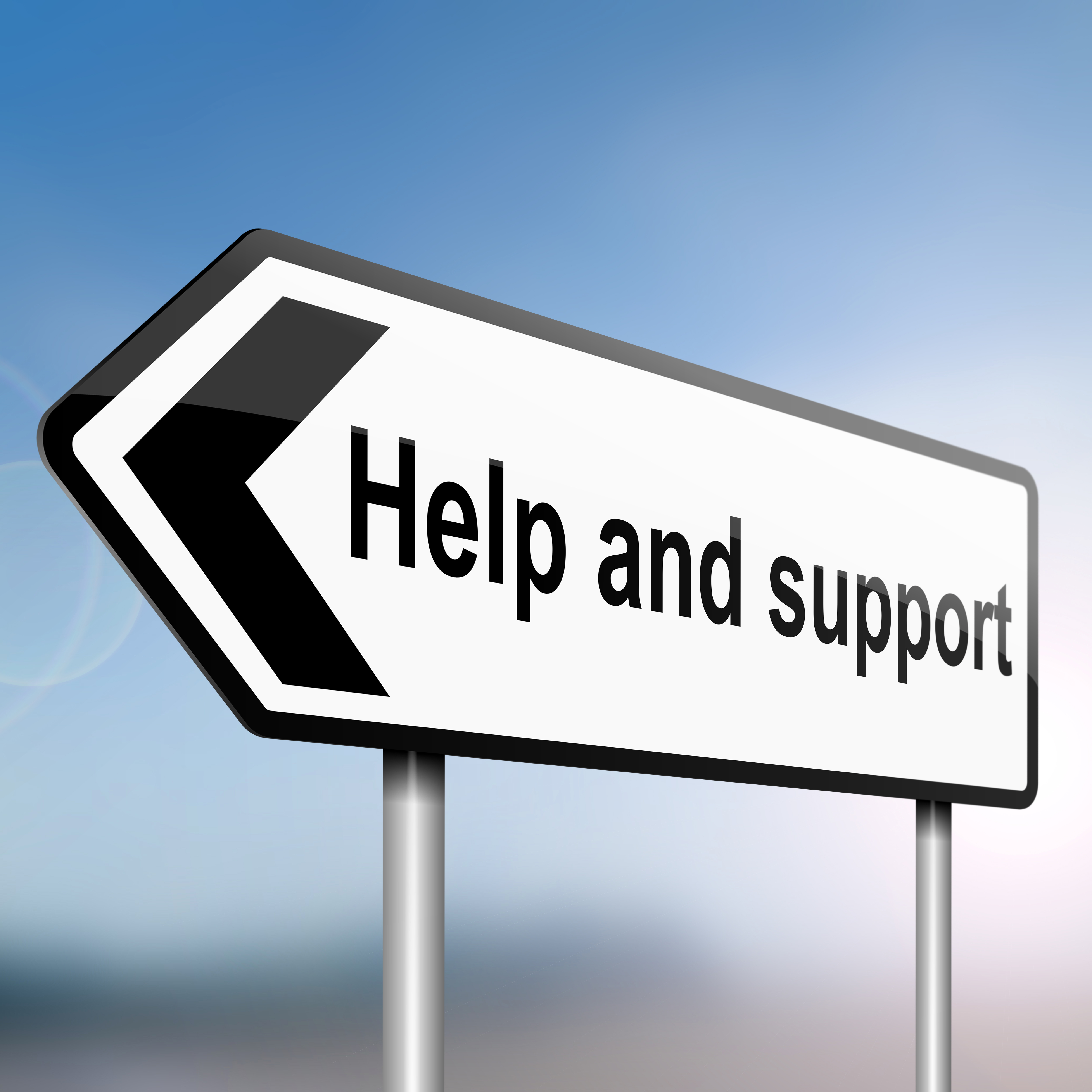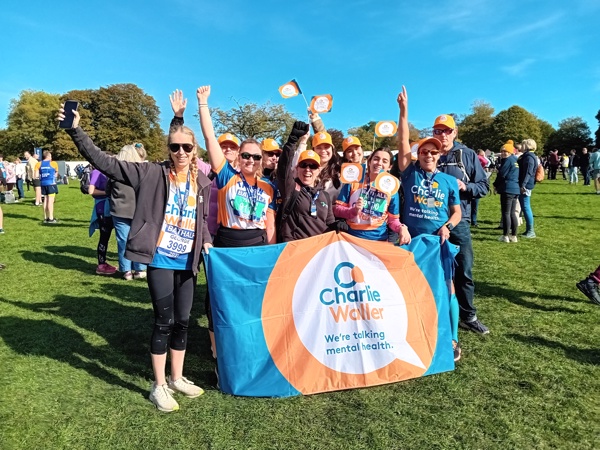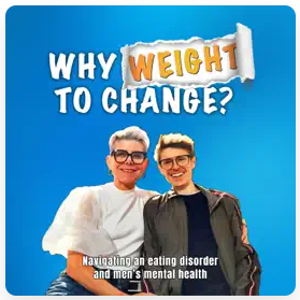The more we talk, the more we find we’re not alone.
May 15 2023

As a teenager, Angela had no idea that what she was experiencing was anxiety, and it was many years before she realised that talking about mental health is essential.
“It’s why Charlie Waller is so important to me,” she says. “The more we talk, the more we find we’re not alone. When I started opening up about my anxiety, other people did too – you discover that so many people are going through the same thing.”

Loneliness and perfectionism
With the benefit of hindsight, Angela recognises that she was already struggling with anxiety at school. “I had overwhelming feelings of fear – of everything, and a constant sense of dread,” she says. “I had no understanding of what I was experiencing and that was the most isolating part. If I didn’t understand what was going on, how could I talk to anyone or find support?”
Angela was lonely at school, without many friends, but she was, and is, very close to her mum. However, she ended up pushing her mum away. She explains: “I wanted to tell her but I realise now that I just didn’t know how to explain how I was feeling and I didn’t know what to ask for.”
Coupled with her anxiety, Angela is also, in her own words, a “control freak” and a perfectionist. It meant that she turned to academic success as a way to cope. “That fear of failure forced me the other way,” she explains. “I had very few friends, so the only thing I could control was ensuring I didn’t fail at exams and got the best results. Everyone praised my good grades and that just reinforced my feelings. Only now can I see it was such an unhealthy attitude.”
Panic attacks
Throughout her 20s, Angela lived with crippling but undiagnosed anxiety, and still hadn’t spoken to anyone about it. She says: “I had become a functioning adult, but I still had no understanding of what I was experiencing, I just hoped it would go away.” However, a series of life events, coupled with her perfectionism, triggered a new level of anxiety when she began to have panic attacks. “I was getting heart palpitations, breathlessness, tingling feelings in my body,” she says.
It got to the point on one particular occasion when she could no longer ignore what was happening. “I was alone in my bedroom when I had an attack so severe I couldn’t breathe. It was terrifying,” she says. “I was screaming ‘help me’, and I grabbed my phone and eventually got through to my mum.”
Her mum insisted she see a doctor, which, in itself, was daunting. She says: “I had an immediate fear – what if they can’t help? – and was worried about being judged. I was shaking and crying all the way to the doctors.”
“One of the hardest things I’ve ever done was to go to that appointment. It was the hardest and best thing I could do for myself.”
The relief of a diagnosis
Angela was diagnosed as having both severe anxiety and depression and instantly felt a huge sense of relief that everything she’d been experiencing now had a name. “I felt I could breathe again,” she says, “there was something they could do about it.
Angela was prescribed anti-depressants straight away to help regulate her emotions. She says: “They were one of the biggest factors in saving my life because I was no longer feeling those incredible lows.” They also gave her the breathing space to explore ways she could help herself. The 10-month waiting list for therapy was, she says, “disheartening”, and, in the end, she chose to pay for private counselling. She points out that finding a counsellor that’s right for you can take time, and that in itself is a “tough road”. In her case, it took meeting three different counsellors.
Three things that help
Recovery is by no means quick or straightforward but, along the way, Angela started to accumulate what she calls her “toolkit” to help build resilience. She says: “For me, it’s exercise, meditation and journaling. Meditation was one of the biggest gamechangers because it’s a way to slow my brain down and to question my thoughts. I use the journaling after I’ve had counselling or when I’ve had a bad day, as a way to try to work out what’s happened.”
Another part of her toolkit is her “amazing support network”, made up of her mum, husband and some close friends. Even with them, however, she finds it harder to talk about her anxiety when she’s struggling with it herself. She says: “When I’m experiencing anxiety, I’m not so open to telling people. It’s hard to explain to people if they’ve not experienced a mental health problem themselves. But I’ve learnt that if I do let people in my support network know, I will feel better.”
Workplace support
Angela has mixed experiences of support in the workplace. “One had a wellbeing policy,” she says, “but it seemed to be more a tick box approach, rather than there being any real support or knowledge.” She has had to be signed off in the past, and, though her manager was supportive on her return, she still felt a sense of stigma and judgement
While she hasn’t had to call upon it, she has a lot more confidence in Charlie Waller’s approach to staff experiencing mental health issues. “I know there is support in place,” she says, “and that we have access to counselling, which is my ‘go to’ when things tip into high level anxiety.”

Right now, Angela describes her anxiety as “dormant”. It can still be triggered – by stress, change and uncertainty, her own perfectionism – but, she says: “I’ve learnt that we can’t control everything, but we can control how we react. Anxiety doesn’t have to be the enemy – it might just be telling me that something isn’t quite right.”
As someone who has come to terms with her anxiety, Angela has a message for others: “If you’re experiencing anxiety, especially for the first time, it can be scary but you’re not alone. There is support and you need to find what’s right for you because that can last a lifetime.”
Angela’s top tips
- Be compassionate with yourself. Some days anxiety can be debilitating and therefore frustrating, especially when you feel you can’t do what you need or want to. Being kind to yourself and knowing that it’s OK to feel that way is so much more helpful.
- Explore what works for you in terms of managing your anxiety – we are all different and everyone’s resilience toolkit will look different.
- When you’re suffering, it can be hard not to feel like giving up when you don’t find the right support quickly, but do persevere.
Related
Popular
Upcoming event

Join us for the Bath Half Marathon to support young people and their mental health!

The Charlie Waller Trust
The Charlie Waller Trust is a registered charity in England and Wales 1109984. A company limited by guarantee. Registered company in England and Wales 5447902. Registered address: The Charlie Waller Trust, First Floor, 23 Kingfisher Court, Newbury, Berkshire, RG14 5SJ.
Copyright © 2025 The Charlie Waller Trust. All rights reserved.






